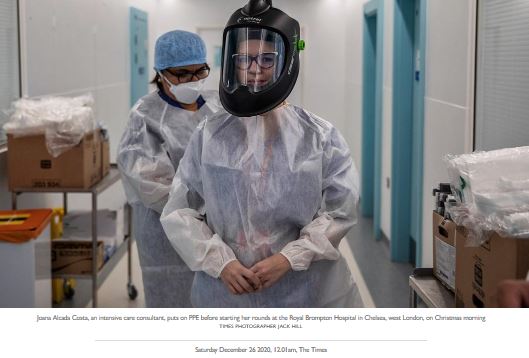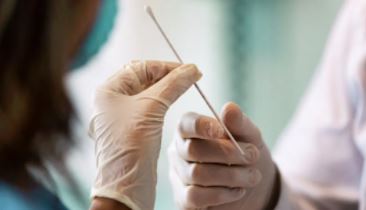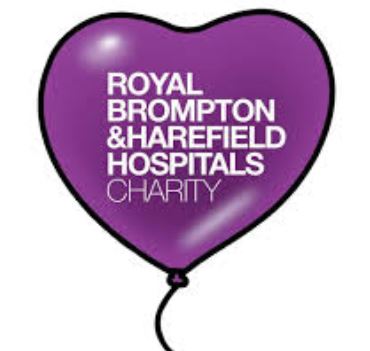

Connect
The newsletter for Royal Brompton & Harefield NHS Foundation Trust members
January 2021
The letter below was sent from Bob Bell, Chief Executive, to all Trust staff, which we would like to share with our members:
Twelve months ago, nobody predicted the extraordinary chain of events that was about to unfold across the globe. At the beginning of January 2020, the World Health Organisation (WHO) announced that 44 patients with ‘pneumonia of unknown etiology’ have been reported by the national authorities in China. It is fascinating to reflect on those early days. To quote from the WHO news release: “Based on the preliminary information from the Chinese investigation team, no evidence of significant human-to-human transmission and no health care worker infections have been reported.”
Of course, we now know just how destructive this new virus would be, devastating whole countries and taking the lives of one and-a-half million people in just a few months.
The first phase of the pandemic saw our organisation cope with unprecedented levels of activity, in extremely challenging circumstances. I remain deeply proud of the way our teams responded to such an immensely difficult situation, putting patients before themselves, working long hours in unfamiliar environments, and supporting each other in ways that I had never seen before. We achieved things that were truly remarkable, while at the same time furthering knowledge about, and understanding of, Covid-19, on a national and international stage.
During the summer months, as the number of Covid-19 patients decreased, I was equally proud of the way things did not return to ‘normal’.
Digital outpatient clinics, home testing, impressive new cross-site collaboration, closer alliances with other hospitals, and remote working, are just some of the things that have transformed our landscape over the past six months. The expertise, diligence and sheer hard work that has been necessary to make these things happen has not gone unnoticed.
Our colleagues at Guy’s and St Thomas’ were a source of support on many levels during the first phase of the pandemic, as we were for them. Many relationships were strengthened and as we assessed new and better ways of delivering our services, it became clearer than ever to me that the collaboration between our two trusts would provide significant opportunities to excel in patient care.
It will not surprise you, therefore, to learn that I was truly delighted when both the Board and Council of Governors had the foresight and ambition to approve our application to merge with Guy’s and St Thomas’ Foundation Trust. Many of you will have heard me recount that after joining the Trust over 15 years ago, when the Paddington Basin project was in its final throes, I have had to defend the organisation against a series of assaults – the most notable being the plan to de-commission our children’s congenital heart surgery, which wound up in the high court.
Regretfully, as the years have passed, the environment has become less welcoming for stand-alone specialist trusts such as ours. Healthcare is changing and it was imperative for us to find a long-term solution.
When we began our discussions with Guy’s and St Thomas’ back in 2016, I sensed that there was a real opportunity to benefit from the scale of a larger Trust and its associated security, while also retaining the identity of our two famous hospitals. This was something on which there could be no compromise – and happily none was required at any stage. The Board of Guy’s and St Thomas’ recognises the importance of our valuable international brands and understands the great reputational benefits that both names carry.
I firmly believe that being part of an integrated hospital system will provide immense benefits; together we will be stronger.
In an unwanted twist of fate, I have had cause to experience the care of both trusts, as a patient, during the past few weeks. For anyone who needs reassurance, take it from me, the levels of expertise and the compassion I have experienced have been equally inspiring. Nobody invites ill-health, but for patients now and in the future, the combined forces of our teams will provide an unparalleled defence against heart and lung disease.
I am mindful that as I write this message the situation with Covid-19 is concerning. I know that behind the scenes the leadership team is working day and night to make sure the impact on staff and patients is manageable. They have the full support of the Board as do you all. We are all aware that those patients who are unlucky enough to experience the worst of Covid-19, will experience the very best of the NHS, if you are caring for them.
Look after yourselves and keep safe. I sincerely hope that 2021 will be better for us all.
To unsubscribe from receiving emails, please click here.
Covid-19 update
The situation around Covid-19 has escalated significantly over the past few weeks. The number of patients needing our specialist care has increased and we expect the situation to be challenging in the coming weeks. The situation for the NHS in London is particularly severe with rising numbers of hospital admissions for Covid-19.
We have increased our capacity significantly at both sites in order to meet the growing needs currently being seen in London and further afield. Our role is to use our resources and specialist skills in the most appropriate way, namely by focusing on patients requiring ECMO or mechanical ventilation. As a result, we have reorganised the way care is delivered to patients, with non-urgent, planned procedures being reduced and priority given to urgent cases. More information about this can be found here.
The Trust has begun its Covid-19 vaccination rollout for staff at Royal Brompton and Harefield hospitals. A great deal of work has been going on at the Trust to ensure that frontline staff have access to the vaccine at the earliest opportunity. Vaccines are being administered onsite, with prioritisation for patient-facing staff, and will continue in the coming weeks.
Merger to transform heart and lung care is approved
The proposed merger between our Trust and Guy’s and St Thomas’ NHS Foundation Trust will proceed on February 1st 2021 following final approval from both Trusts’ Boards and ratification by the two Councils of Governors. The partnership will create one of the largest and strongest academic healthcare organisations in Europe.
The combined expertise of the Trusts’ clinical and academic teams created through the merger will be unparalleled. Together the teams will continue to deliver exceptional care to patients and drive research into new and better treatments. This ambitious venture will create, in time and with the necessary consultation processes, a new centre of excellence for heart and lung disease on the St Thomas’ site.
To read more about the merger, click here.
In the press
Following publication of several moving photographs of Trust staff caring for critical care patients on Christmas Day, a number of supportive comments were posted on the Times and Sunday Times online site. The photographs, taken on Royal Brompton’s AICU (adult intensive care unit), drew praise for all NHS teams working during such challenging times.
The comments included:
“Seeing these pictures makes me so so thankful we live in a nation where we have NHS staff like these - so sacrificial.”
“What an awesome and truly humbling documentary of these times. Hopefully The Times will review these in 10 years’ time and people will still marvel at the dedication and expertise of our NHS. My heart goes out to the patients and their families suffering.”
“Our thoughts, hope and prayers should go to all the wonderful people who are looking after the people who are suffering, and those in hospital ill or recovering.”
To view the photos, click here.
Trust study shows inhaled nitric oxide may help patients with Covid-19 pneumonia
A recently published study, led by clinicians at the Trust, has shown that inhaled nitric oxide (iNO) given to patients with severe Covid-19 pneumonia, significantly improves oxygen levels.
The majority of patients admitted to intensive care with Covid-19 pneumonia require invasive mechanical ventilation. This is provided alongside ventilation strategies such as placing patients in the prone position (lying on chest), to help improve oxygen levels in the body.
However, for some patients with severe Covid-19 pneumonia the usual ventilation strategies do not improve oxygen levels, which led the team to look at how the use of iNO may have helped.
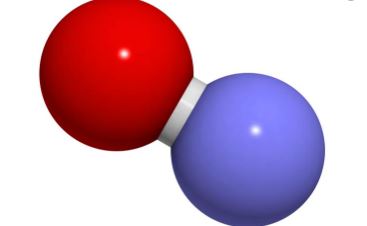
The study, the largest of its kind worldwide, was led by Dr Laura Price, consultant physician for pulmonary hypertension, and Dr Benjamin Garfield, consultant in critical care.
“This was a great example of the teamwork across both hospital sites, with multi-professional staff from all the different ICU areas within the Trust being represented in the ‘Covid-19 Pulmonary vasodilator Study Group’ which undertook this work.”
So, what’s next?
According to Dr Price, “It’s not yet clear whether Covid-19 is a more pulmonary vascular form of Acute Respiratory Distress Syndrome, and whether these therapies are more efficacious than usual. Future trials will also be needed to understand if iNO might improve additional outcomes such as ICU length of stay and mortality in Covid-19, as well as oxygenation and dead space.”
The next step for the team will be to explore the characteristics of those patients who responded positively to iNO, with plans to run a multicentre project examining the use of inhaled pulmonary vasodilators for patients with Covid-19 pneumonia.
Research 2020 highlights
Research forms the backbone of the work carried out at the Trust, and although March saw almost 200 out of a total of 250 studies placed on hold to ensure the safety of patients, volunteers and staff due to Covid-19, there have been many achievements to celebrate since then.
This allowed staff to be freed up and redeployed across the Trust to help with the response to the pandemic, as well as run several Covid-19 urgent public health studies. In May, research projects began to re-open and there are now almost 200 active studies.
At the start of 2020, several respiratory projects were awarded funding via the first of three joint calls from the Trust, Imperial College London and Imperial College Healthcare NHS Trust (ICHT).
A total of 10 studies were funded in the first round including an Idiopathic Pulmonary Fibrosis (IPF) study led by Dr Deborah Morris-Rosendahl, and a study on how the environment and types of infections infants are exposed to affects their lung health in adulthood, led by Dr James Allinson.
In March, the Trust celebrated International Women’s Day by profiling some of the women who work in research at our hospitals, including Professor Claire Hogg, Alla Kashif, Geraldine Sloane, Dr Vennela Boyalla and Dr Claire Nolan.
By April, most of the research taking place at both hospitals was Covid-19 related and the Trust’s researchers contributed to the global research efforts with some important findings, including;
- Helping to establish a clear link between COVID-19 and blood clotting
- A ‘simple’ innovation to ventilators that could increase oxygen supplies at hospitals
- A link between blood vessel disease and severe COVID-19
- A study showing inhaled nitric oxide may help patients with COVID-19 pneumonia.
Research also continued to publish results on non-Covid studies, including:
- A study that shows ‘freezing’ lung procedure improves symptoms in patients with chronic bronchitis, led by Professor Pallav Shah
- Testing the use of an app to monitor hearing loss in CF, led by Dr Anand Shah
- A study that showed invasive procedures are no better than medication for coronary heart disease, led by Professor Roxy Senior
- Research showing patients with heart rhythm problems benefit from invasive ablation treatments, led by Dr Tom Wong.
Dr Sandra Scott
Despite the disruption and adversities of the year, many research staff were recognised for their hard work, with several of them receiving funding and personal awards, including;
A record breaking five pre-doctoral clinical academic fellowships (PCAFs) were awarded to Trust staff, a quarter of all PCAFs awarded in London and 10% of PCAFs awarded nationally.
Four members of staff were successfully awarded funding from Royal Brompton and Harefield Hospitals Charity to conduct research.
Both Dr Sandra Scott and the Adult ICU research team were recognised by the North West London Clinical Research Network for their outstanding work in research.
Royal Brompton team perform first two cases of Tendyne Transcatheter Mitral Valve Implantation in the UK
Royal Brompton’s transcatheter mitral team has performed the first two cases of Tendyne Transcatheter Mitral Valve Implantation in the UK, following approval from European regulators for use of the device in patients with significant mitral regurgitation.
What is the procedure and why is it needed?
The Tendyne procedure is a minimally invasive technique used to treat patients with mitral regurgitation.
Mitral regurgitation occurs when the mitral valve (which separates the upper left heart chamber from the lower left chamber and helps control blood flow through the heart) becomes damaged and fails to close properly, which results in blood flowing backwards, or leaking, through the valve when the heart contracts.
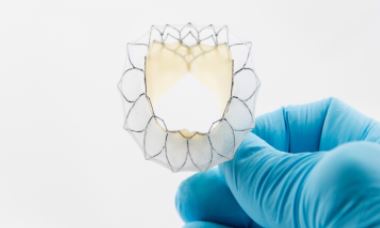
This can cause shortness of breath, tiredness, dizziness and chest pain and left untreated it can lead to heart failure and death. Conventional open-heart surgery can be high-risk, so the Tendyne method offers an alternative to patients considered too vulnerable for conventional open-heart surgery.
What is the Tendyne tissue valve?
The Tendyne valve is a fully repositionable, fully retrievable, self-expanding tissue valve. It is placed into a patient’s beating heart, without the use of cardiopulmonary bypass (commonly known as a heart-lung machine), thereby replacing their mitral valve. It is implanted via a catheter through a small incision between the ribs.
The procedure in 2020
Two patients who suffered from severe mitral valve regurgitation, impaired left ventricular function and significant pulmonary hypertension, underwent the procedure and responded well to treatment.
The team included consultant imaging specialist Alison Duncan, consultant anaesthetist Caterina Vlachou and was led by consultant surgeon Cesare Quarto.
Mr Cesare Quarto said: “We are happy that surgery went well, and the patients responded positively. We are grateful to all Royal Brompton staff and managers for their support of the team and the procedure.
“Only a few centres worldwide have performed this procedure. This technology enables us to treat patients that don’t have other options for treating their mitral disease. More patients will now be able to have the procedure and more lives can be saved.”
Dr Alison Duncan, consultant imaging specialist, added: “The single best advantage of Tendyne is complete and reliable elimination of mitral regurgitation in high-risk surgical candidates without the need for cardiopulmonary bypass. The recovery rate also tends to be rapid and high-risk patients can be discharged directly to their own homes, independent of activities of daily living.”
Trust’s pathology team revolutionise testing in an unprecedented year
Like many teams across the Trust, this year has brought challenges, changes and opportunities to work together differently. Over the last eight months, the laboratory medicine team has revolutionised the Trust’s testing capability to not only provide crucial support to Covid-19 patients but also to implement a comprehensive staff testing programme in a short space of time.
Before the pandemic, testing for diseases like Covid-19 would have been typically done in the microbiology lab at Royal Brompton Hospital. However, as demand grew, the laboratory medicine team took a collaborative approach across both sites – bringing together and upskilling staff from the tissue typing, blood sciences and immunosuppression laboratories.
Thanks to the additional support of the wider microbiology department, the team increased Trust-wide testing capability, which meant a seven-day service could be provided at both hospitals with rapid turn-around-testing in fewer than four hours for both routine and urgent samples for patients and staff.
Ali Nuh, senior biomedical scientist (microbiology), pictured above, carried out the verification and set up of testing at both Royal Brompton and Harefield.
Between June and September, the blood sciences laboratory team also carried out antibody testing for over 3,000 staff. The results, reported into NHS Improvement, contributed to the national estimates during the first wave of the pandemic.
The blood sciences team also introduced procalcitonin testing on all intensive care patients, (a test that measures the level of procalcitonin in blood – where high levels can be a sign of a serious bacterial infection, such as sepsis) and the Point of Care Testing team expanded the availability of TEG testing (a blood coagulation test), with new equipment installed on both sites. They also supported the relocation of blood gas analysers to meet the needs of patients.
Penny Agent, director of allied clinical sciences, thanked staff across laboratory medicine who have supported the Covid-19 work over the year: “It has been phenomenal how everyone has really pulled together and worked so hard at making sure staff have access to appropriate testing across our services.
“The amount of behind the scenes work it takes to ensure new equipment and test methods are fully validated and fit for purpose, whilst ensuring that all quality aspects are fully assured, is immense. The staff have been fantastic at ensuring all of this is done.”
The Trust’s Patient & Public Engagement (PPE) strategy was launched in January 2020 and is available online. Its objectives are:
- Listening to your experiences of care
- Learning from your feedback
- Leading change to our services together with you
Below are some examples of activities we are implementing to help achieve our aims.
Listen
Patient & Public Engagement Group
The PPEG oversees delivery of the PPE Strategy and has played a critical role in supporting improvement initiatives at the Trust. Since May 2020, the group has met virtually every six weeks, providing insight into issues of concern to patients during the pandemic. During this time, we have increased in membership to over 30 patients and will continue to meet virtually for the foreseeable future. In 2021 we will review our Terms of Reference, including how the groups is managed and run. As part of this we will also agree a process to elect a patient chair.
RBH Trailblazers
RBH Trailblazers is the Trust’s youth forum supporting young people aged 13 to 25. Jointly managed with Brompton Fountain, this group aims to provide opportunities for networking, skills development and supporting quality improvement projects. This year membership has increased to over 40 active participants and we aim to increase this significantly in the coming year.

December painting social and the artwork created by Trailblazer, Kosta
Learn
Patient involvement in working groups
Although the Trust enjoys high levels of patient satisfaction (from the Adult inpatient survey and Friends & Family Test) we strive to find ways to improve all our services. This year we have created opportunities for patients to support improvements in several quality improvement initiatives including working groups on noise at night, discharge and raising awareness of how patients can get involved in our work.
Lead
To ensure that the Trust keeps patients safe during the pandemic, access to the hospital has been restricted in order to reduce footfall and, therefore, the risk of cross-infection. This has included closing our wards to patient visitors which has inevitably made inpatient stays more challenging for some people. In response to this, we will be recruiting an activity co-ordinator for six months, kindly funded by the Royal Brompton & Harefield Hospitals Charity. The activity co-ordinator will set up a monthly working group meeting for inpatients to raise issues and concerns. They will also facilitate a range of leisure, social, cultural, learning and recreational opportunities to support recovery, the development of new skills and reduce loneliness.
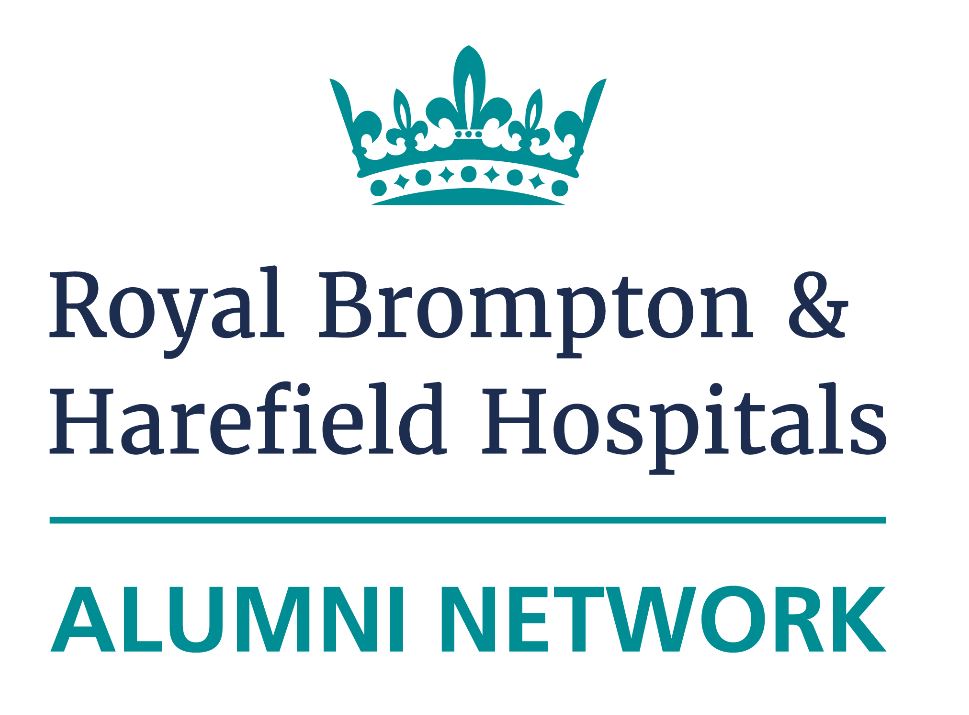
Royal Brompton and Harefield hospitals are proud to announce the launch of their Alumni Network. Staff, past and present, have enabled our hospitals to maintain a reputation as a world-leading centre of excellence in heart and lung care.
We understand the importance of building long-term relationships between our hospitals and our alumni, encouraging new opportunities and continued personal development. Wherever you are in the world, we want you to keep in touch with us and the international community that has shared the Royal Brompton and Harefield hospitals' experience.
The Alumni Network welcomes current employees and former colleagues from all areas, from administration and managerial areas to clinical and research backgrounds, as well as honorary staff. Register to reconnect with colleagues past and present, access education and training, networking events and job opportunities.
If you have any questions or would just like to get in touch, please contact Maria Rosemin, Alumni and Community Manager at [email protected].
Royal Brompton & Harefield Hospitals Charity 2020 highlights
Thanks to generous contributions from our donors including many of you, Royal Brompton & Harefield Hospitals Charity has raised over £2.9 million so far this year to keep Royal Brompton and Harefield hospitals at the leading edge of patient care.
Kusuma Trust UK and The Monday Charitable Trust donated £100k each which went towards the ECMO programme and other medical equipment to support the fight against coronavirus. £163,000 from NHS Charities Together went towards staff training, health and wellbeing projects as well as patient rehabilitation.
Last year we held Team Hearts Vs Team Lungs, an online challenge event that raised £29,278, and took part in The Big Give Christmas Challenge, which raised £40,904. Recently we held a virtual Christmas carol concert featuring Her Royal Highness Princess Eugenie, Dame Sian Phillips and Strictly Come Dancing star Lance Ellington.
We also tried out new online events such as a Zoom based bingo night, a virtual quiz, with rounds hosted by celebrities Anneka Rice, Bill Bryson, Jeremy Limb, Mel Giedroyc and Jos Buttler, and an online panel discussion on the future of healthcare hosted by Jonathan Dimbleby.
Gill Raikes, Chief Executive of Royal Brompton & Harefield Hospitals Charity, said: “I would like to thank many of you who have helped out the Charity this year. Lots of you joined Team Hearts Vs Team Lungs, as well as our launches, quiz, special online receptions and the Bingo."
Find out more about our appeals and upcoming events on the charity’s website: www.rbhcharity.org
Membership & Events
Following the positive feedback from members who attended the recent Merger update and Q&A event on 12 January, we will look to host a similar Trust update event in March, if not before. We are currently planning additional online events for 2021. You will receive an email with details of upcoming events and can also check the member events page which is updated regularly.
If you have any questions about future member events or your membership benefits please contact Nancy Dickinson at [email protected].


